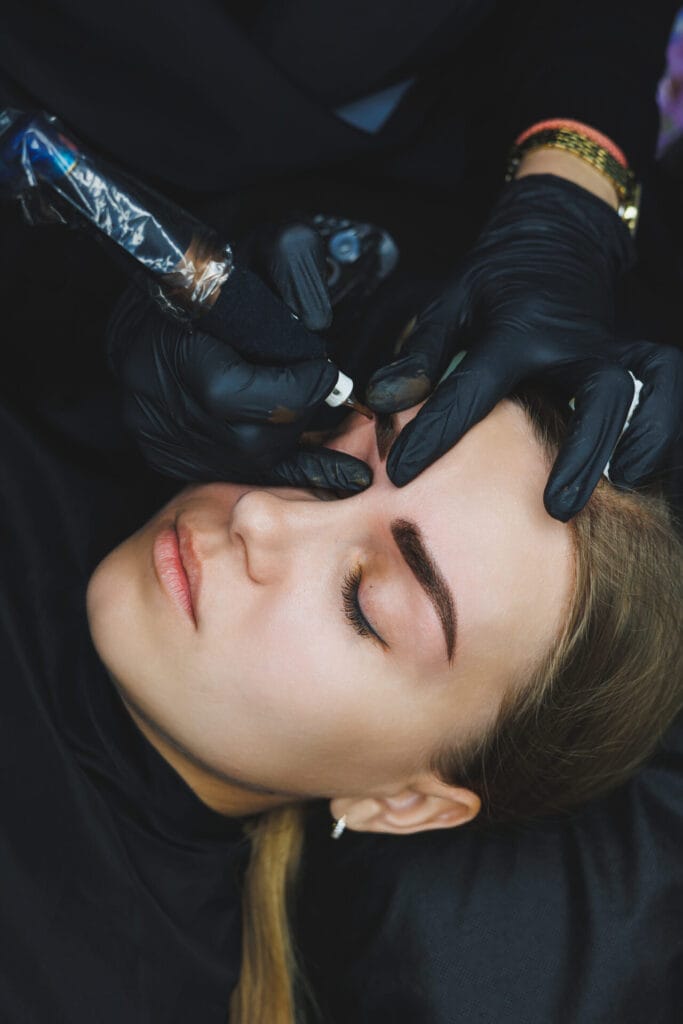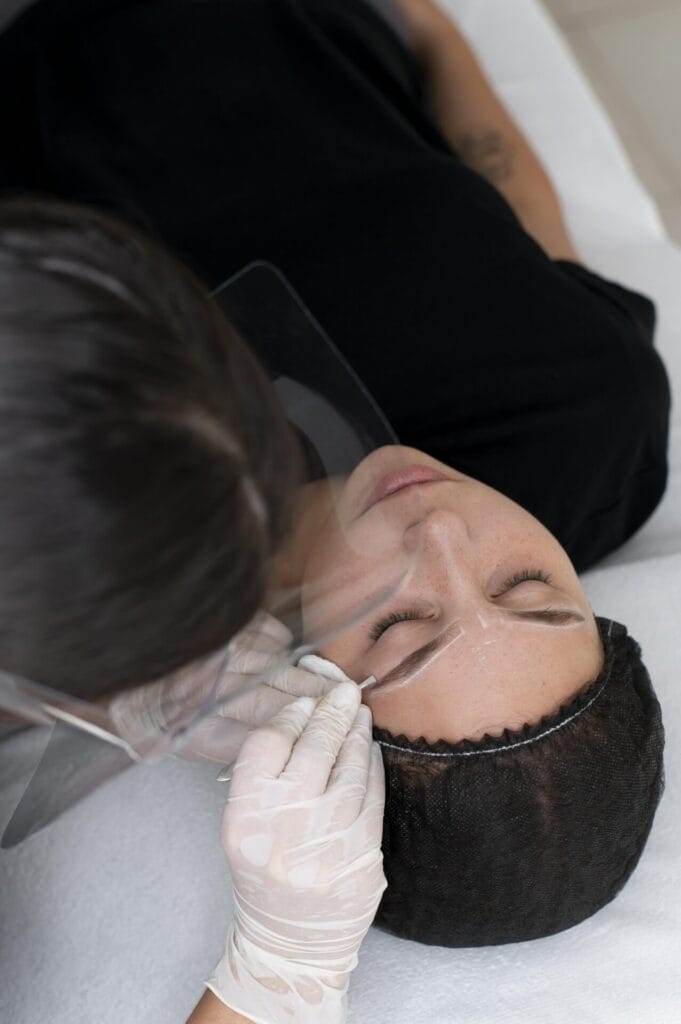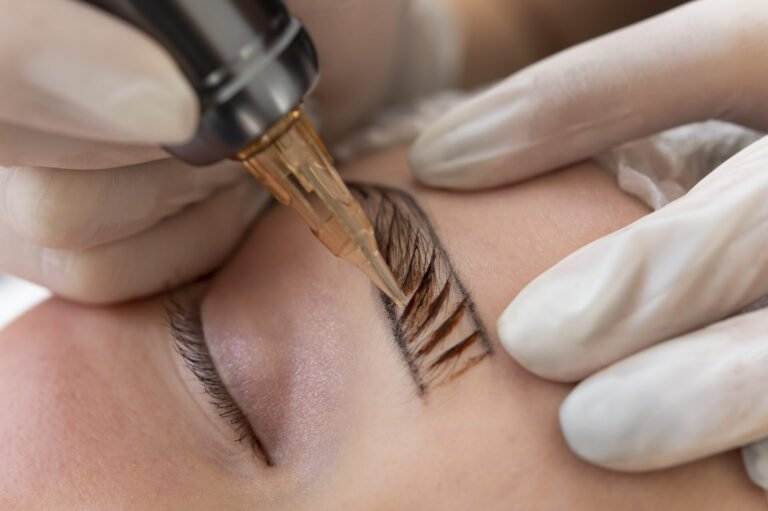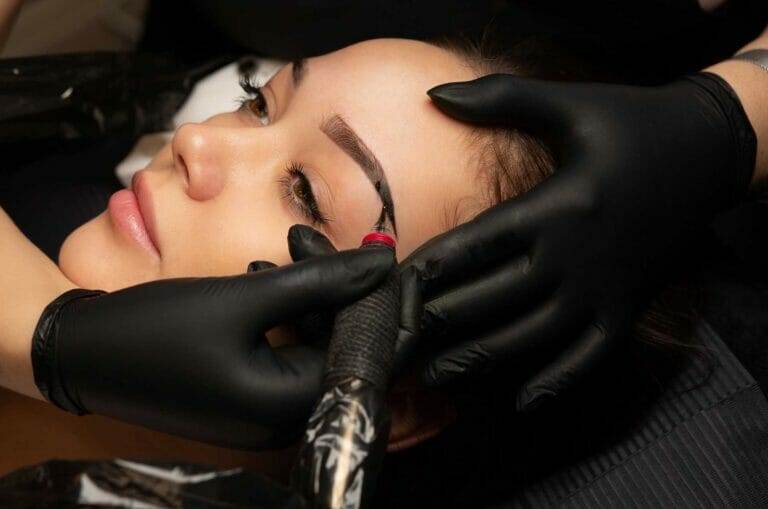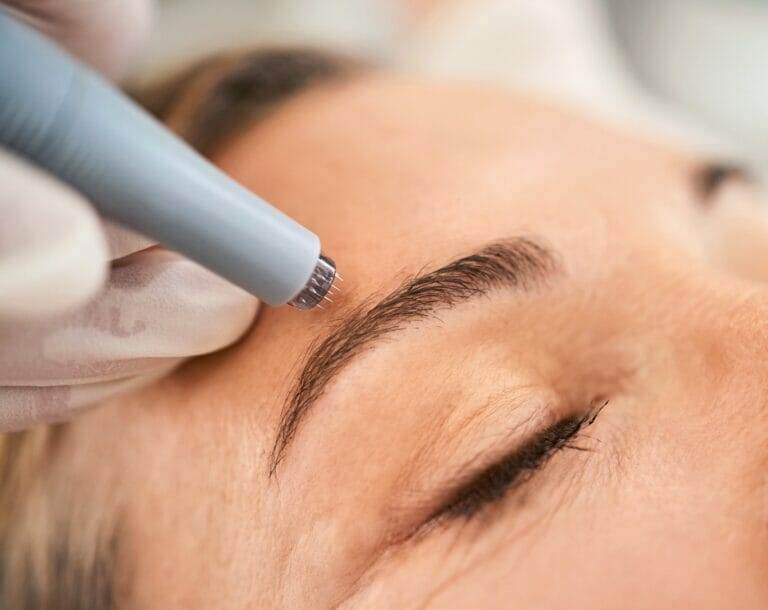Permanent makeup, also known as cosmetic tattooing or micropigmentation, is a procedure that involves the application of pigments to the skin to enhance and define certain features. It has gained popularity in recent years due to its ability to save time and money, as well as its long-lasting effects. Permanent makeup can be a game-changer for those who want to wake up with perfectly shaped eyebrows, defined eyeliner, or luscious lips without the hassle of applying traditional makeup every day.
What is Permanent Makeup?
Permanent makeup is a form of tattooing that uses specialized techniques and pigments to create long-lasting results. The process involves depositing pigment into the dermal layer of the skin using a handheld device or machine. The pigments used in permanent makeup are specifically formulated for cosmetic use and are designed to fade over time, allowing for adjustments and touch-ups as needed.
Compared to traditional makeup, which needs to be applied and reapplied daily, permanent makeup offers a more convenient solution. It can save you precious time in your daily routine, as you no longer need to spend time perfecting your eyebrows or applying eyeliner. Additionally, permanent makeup can be a great option for those with allergies or sensitivities to traditional makeup products.
Benefits of Permanent Makeup
One of the main benefits of permanent makeup is the time-saving aspect. With permanent eyebrows, eyeliner, or lip color, you can wake up with your desired look already in place. This can be especially beneficial for those with busy schedules or those who struggle with applying traditional makeup.
In the long run, permanent makeup can also be cost-effective. While the initial investment may be higher than purchasing traditional makeup products, the long-lasting effects mean that you won’t need to continuously repurchase items. This can save you money over time.
For individuals with allergies or sensitivities to traditional makeup products, permanent makeup can be a game-changer. The pigments used in permanent makeup are hypoallergenic and less likely to cause adverse reactions. This allows individuals with sensitive skin to enjoy the benefits of makeup without the risk of irritation.
Permanent makeup can also enhance natural features and correct imperfections. Whether you want to fill in sparse eyebrows, define your eyes, or add color to your lips, permanent makeup can help you achieve your desired look. It can also be used to camouflage scars or recreate the appearance of areolas after breast reconstruction surgery.
Common Permanent Makeup Procedures

There are several common procedures in the world of permanent makeup. One of the most popular is eyebrow microblading, which involves using a handheld tool to create hair-like strokes that mimic the appearance of natural eyebrows. This procedure is ideal for those with sparse or thin eyebrows who want to achieve a fuller, more defined look.
Eyeliner tattooing is another common procedure, which involves applying pigment along the lash line to create the appearance of fuller and more defined eyes. This can save time and effort in your daily makeup routine, as you no longer need to apply eyeliner every day.
Lip tattooing is a procedure that involves adding color and definition to the lips. This can be done by adding pigment to the entire lip area or by creating a lip liner effect. Lip tattooing can enhance the natural shape and color of the lips, giving them a more youthful and vibrant appearance.
Areola tattooing is a specialized procedure that is often performed after breast reconstruction surgery. It involves recreating the appearance of areolas and nipples using pigments that match the patient’s skin tone. This can help restore confidence and a sense of normalcy for individuals who have undergone breast surgery.
Scar camouflage is another common use for permanent makeup. It involves using pigments to match the surrounding skin tone and blend in with scars, making them less noticeable. Scar camouflage can be a great option for those who want to minimize the appearance of scars and feel more confident in their skin.
Preparing for Permanent Makeup
Before getting permanent makeup, it is important to have a consultation with the artist. During this consultation, you can discuss your desired look, ask any questions you may have, and ensure that you are a suitable candidate for the procedure.
In preparation for the procedure, it is important to avoid certain medications and activities that can thin the blood or increase bleeding. This includes avoiding aspirin, ibuprofen, and alcohol for a few days before the procedure. It is also important to disclose any medical conditions or medications you are taking to your artist to ensure your safety.
Properly hydrating and moisturizing the skin leading up to the procedure can also help ensure optimal results. Well-hydrated skin allows for better pigment absorption and can result in longer-lasting results.
The Procedure: What to Expect
The permanent makeup procedure typically begins with the application of a topical numbing cream to minimize any discomfort. The artist will then use a handheld device or machine to deposit the pigment into the skin. The process involves multiple passes over the area to ensure even pigment distribution.
The length of the procedure can vary depending on the area being treated and the desired outcome. Eyebrow microblading, for example, can take anywhere from one to two hours, while a full lip tattooing procedure can take up to three hours.
Pain management options are available for those who may be more sensitive to discomfort. These options can include additional numbing creams or even local anesthesia, depending on the individual’s pain tolerance and the artist’s recommendations.
Aftercare for Permanent Makeup
Proper aftercare is crucial for optimal healing and long-lasting results. This includes cleaning and moisturizing the treated area according to the artist’s instructions. It is important to avoid picking or scratching at the treated area, as this can disrupt the healing process and potentially affect the final results.
Certain activities and products should be avoided during the healing process. This includes avoiding swimming pools, hot tubs, saunas, and excessive sun exposure. It is also important to avoid applying makeup or skincare products directly on the treated area until it has fully healed.
Follow-up appointments with the artist may be necessary to assess the healing process and make any necessary touch-ups or adjustments. These appointments allow the artist to ensure that you are satisfied with the results and address any concerns you may have.
Maintaining Your Permanent Makeup
To maintain your permanent makeup, touch-up appointments may be necessary every few years. Over time, the pigments can fade or change in color, so touch-ups can help maintain the desired look.
Proper sun protection is also essential for maintaining your permanent makeup. Excessive sun exposure can cause the pigments to fade more quickly, so it is important to wear sunscreen and protective clothing when exposed to the sun.
Avoiding harsh chemicals and exfoliants on the treated area can also help prolong the life of your permanent makeup. These products can cause the pigments to fade or become discolored, so it is important to be mindful of the products you use on your face.
Potential Risks and Concerns
While permanent makeup is generally safe, there are potential risks and concerns to be aware of. Allergic reactions to the pigments used in permanent makeup can occur, although they are rare. It is important to disclose any known allergies or sensitivities to your artist before the procedure.
Infection is another potential risk, although it can be minimized by following proper aftercare instructions and ensuring that the artist follows strict hygiene practices. It is important to choose a reputable artist who prioritizes cleanliness and uses sterile equipment.
Fading or discoloration of the pigments over time is also a possibility. This can be influenced by factors such as sun exposure, skincare products, and individual skin characteristics. Regular touch-up appointments can help maintain the desired color and ensure long-lasting results.
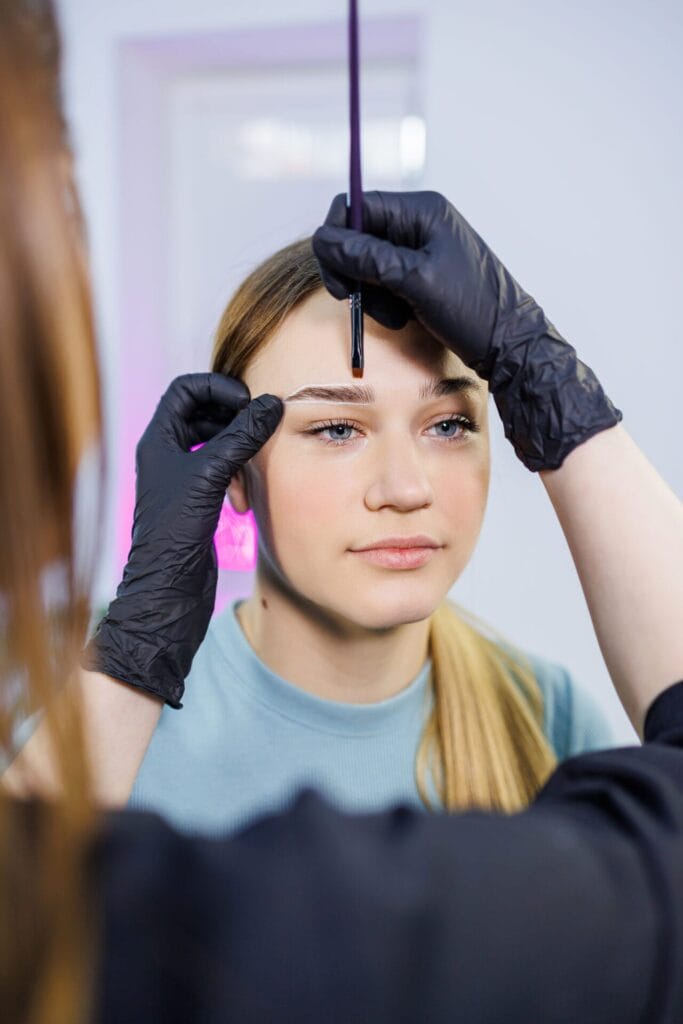
Is Permanent Makeup Right for You?
Before deciding to get permanent makeup, there are several factors to consider. Personal preferences and lifestyle play a significant role in determining whether permanent makeup is the right choice for you. If you enjoy experimenting with different makeup looks or prefer to change your look frequently, permanent makeup may not be the best option.
Consulting with a qualified permanent makeup artist is essential in making an informed decision. They can assess your individual needs and expectations, discuss the potential risks and benefits, and provide guidance on whether permanent makeup is suitable for you.
In conclusion, permanent makeup offers numerous benefits, including time-saving convenience, cost-effectiveness, and the ability to enhance natural features. However, it is crucial to do thorough research and consult with a qualified artist before making a decision. By taking these steps, you can ensure that you are in safe hands and achieve the desired results.

